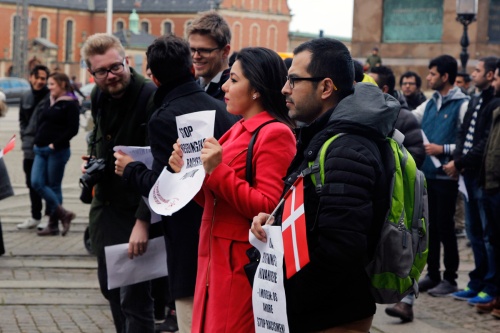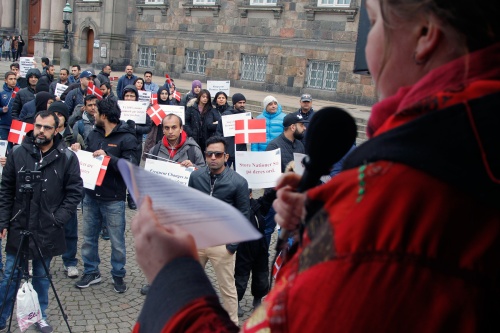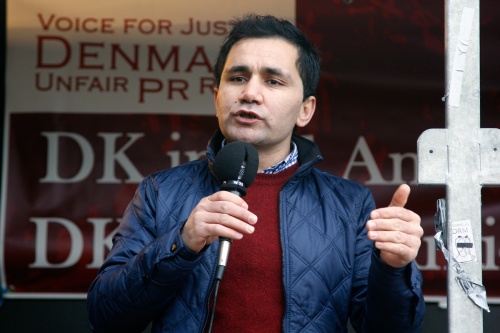
Støjberg’s post on Facebook on March 14th read “Today the 50th restriction on migration as passed. This must be celebrated!” along with a photo in which the smiling minister held a large cake with the number 50 on it.
Every time expats live by the rules and fulfil all the requirements for obtaining permanent residence permit in Denmark, comes a new set of rules. Only last year in January, the rules for permanent residency were changed and now once again Immigrants are locked up with another set of rules proposed by the new coalition government in the form of Bill L154.
Hundreds of immigrants applied for Permanent residence permit after fulfilling all the requirements and residing more than 5 years in Denmark last year but were told to wait for one more year when rules were unjustifiably changed in January 2016. The new proposed bill L154 along other stricter requirements proposes that expats have to wait for 2 more years to make it 8 years of stay in Denmark to obtain permanent residency permit.
A recent study by a law professor at Aarhus University found that there has been 68 times changes in immigration laws of Denmark in last 15 years. This translate to a change in immigrations laws every 3 months. When there are frequent changes constantly tightening the requirements for permanent residency, it creates a basic sense of uncertainty and lack of predictability. Then it becomes not only more difficult to live a normal life, but also means that people who think they are right on the track of getting permanent residency yet they face another new set of requirements. It is problematic says law professor at Aarhus University Jens Vedsted-Hansen.
The permanent residence permit provides expats and their accompanying family the opportunity to start their own business, setup a firm, start a course in university without having worried for visa extension and most importantly a peace of mind that you will not be sent back to home country in case you lose your job, become sick, got divorced, become widow or could not fulfil the strict income requirements for some uncontrollable reasons.
The overall issue
According to Jens Vedsted-Hansen study, the rules for permanent residency has been specifically changed 10 times in last 14 years. Only in last one year there has been a change and a new proposal for change which will make a change in permanent residency rules after every 8 months. This will definitely make Denmark on top for making life harder for immigrants.
On December 10, 2015, bill L87 was proposed to the parliament for tightening the permanent residency rules. It was passed through the parliament on 26th January, 2016 but adopted retroactively from the date it was proposed i.e. December 10, 2015. This legislation made it mandatory to reside 6 years in Denmark and work full time for 2,5 years in last 3 years to be eligible for obtaining permanent residency. Although expats protested against this bill but later start settling down with the new requirements. A year later, the new coalition government are proposing even stricter rules. Expats are told this time to wait for 2 more years and work 3,5 years in last 4 years to be eligible for obtaining Permanent residency.
The proposed bill L154 says that an expat has to reside 8 years in Denmark to be eligible to apply for permanent residency instead of the current 6 years and 5 years stay just few months ago. In most of the European countries and throughout the world it is usually 5 years of stay and full time work to obtain permanent residency. Even under the current rules of 6 years of stay, Denmark is on the top. The new proposed bill L154 will make it even harder for making it 8 years of stay for obtaining permanent residence permit. These changes in permanent residency rules means that expats spend most of their time and energy to navigate with the amended legislations. It becomes too hard sometimes that expats decide to leave the country.
Denmark is locking every door to immigrants
Attracting and retaining foreign labour has become hard
In the recent years, Denmark has gained a reputation as a country that is not sympathetic to foreigners, where “smykkeloven (jewelry law)” is just the last example. It is not only salary and work environment that foreigners observe before choosing a job in a specific country rather they look for a place where they settle down eventually with a home and security of not being kick out of country in case they lose their jobs for various reasons. The reason why skilled foreign workers are scared and uncertain about their future in Denmark is the frequent changes in immigrations laws. This has adverse effects not only on those foreigners but also on the Danish labour market and overall economy.
Here are some examples of skilled foreign professionals who are severely affected by the constant changes in immigrations rules.
Marie, USA, Pay Limit Scheme
After 5 years in Denmark, studying and working, I applied for permanent residency on January 20, 2016. But on January 26, 2016 the requirements were changed and put in place retroactively from December 10, 2015. I didn’t fulfil the new requirements because my time spent studying didn’t count anymore and I needed to have worked not studied. I cancelled my application and prepared to apply again in one year. Now two months before I can apply again, the government is talking about changing the requirements again, requiring me to wait two more years. If they do that, my Danish boyfriend and I are prepared to move to another country. We want to settle down, have a family and buy a house. But I refuse to do those things before I am assured that I won’t have to leave the country if I lose my job. I don’t trust the government that they won’t change the rules again.
Danni, Israel, Family Reunification
I came to Denmark in January 2011 after marrying my wife, a Dane and doctor. At that time I needed to be in the country for 5 years, to study or work for 3 of those years, and study or work while my application for permanent residency was being processed. I finished my studies in Jan 2016 and before I could find a job, the requirements were changed. All my years of studying didn’t count anymore and I needed to work 2,5 years of the last three years. Currently I have 2 children and my own company. My wife and I dream of buying a house but we still have over 30.000 Dkk in a bank account we cannot access until I have permanent residency. Now in case these rules are passed from the parliament I have to wait for another 2 years to obtain permanent residency. It will mess up my whole life.
Ahmed, Pakistan, Green Card
I have a Masters in Computer Science from Sweden and I have green card to work in Denmark. It didn’t take me long to find a job as a web designer after I came to Denmark and after 5 years I had fulfilled all the requirements for permanent residency. I applied for permanent residence permit last year but the rules were changed and my applications was rejected and I lost my application fee of 5,450 DKK. Since then, I have be working to meet the new requirements and when I am about to apply for permanent residency, the government is once again changing the rules. If this happened I won’t stay in Denmark. I need a peace of mind and not worry about applying for visa extensions every time and permanent residency will give me a peace of mind.
Mario, Columbia, Establishment card
Six years ago I came to Denmark to study a Masters degree and when I finished I applied and received an establishment card. I qualified for permanent residency but didn’t apply immediately which I regret. I didn’t expect the changes coming nor that they would be implemented retroactively. The new requirements meant my time studying did not count anymore and I needed to have worked 2.5 of the last 3 years. I know it is my fault I didn’t apply for permanent residency when I could have. I don’t want it in order to get unemployment benefits (dagpenge or kontanthjælp). I want to stay and work and contribute. Apart from my full time job I also have a company I have started, and I play guitar in a music band. For me Denmark is home, but it is so difficult to stay.
Sara and her husband Bahram, Iran, Medical Doctor, Green Card
After getting Green Card my husband Bahram and I moved to Denmark in June 2011. Soon after, my husband got a job as a Doctor in Nephrology department at Viborg hospital and I start working in the IT department of Crisplant (Beumer Group). We both are well paid and enjoy our jobs. The only thing that worry us and stop us from having a family, a home and kids is the constant changes in the immigration rules. In May 2016 we got lucky that green card holders were given the right to extend their visa but I am not sure until when we will be that lucky. These new proposals for permanent residency will make our life even harder and we consider that they are totally unfair and unjustifiable. I frequently travel because of my job to different countries and I have to get re-entry permit every time when my visa is under process and this wouldn’t happen if I have permanent residence permit.
Consequences and Risk for Danish Employers and Economy
The Danish economy has increased by 34 billion kroner from 2010 to 2014 and some 24 billion kroner of that is due to the influx of foreign labour says Karsten Dybvad, the CEO of the Confederation of Danish Industry (Dansk Industri – DI). This implies that over two-third of the growth in Danish economy is due to the contributions of foreign workers. Denmark will need even more foreign labour in coming years as according to Kristian Weise, CEO of Cevea, “Denmark is facing demographic changes and we will be short of labor in the future. Only since 2000, the number of Danish nationals in the working age has decreased by 13.3 percent. Denmark therefore, need foreign labor to support the workforce”.
It is not possible for Danish employers to find the required workers within the boundary of Denmark. Therefore, either they recruit foreign labour or prevent business growth and development or in most extreme cases they move jobs abroad. It is therefore, important that employers can attract qualified foreign workers and retain those who are already here. The foreign worker will strive to obtain permanent residency to get the same rights and opportunities as their Danish colleagues. But if rules for settlement and permanent residency are changed every 3 months then it will be harder for Danish employers to attract and retain foreign employees. Danish employers will suffer to retain even Danish nationals who have his or her spouse on a family reunification. This subsequently will reduce economic growth in the country and thereby also education which is financed by the Danish taxpayers will come into play elsewhere in the world.
‘Denmark’s constant residency curbs will turn away skilled workers’
Expectations from the current legislation
In order to ensure legal certainty, transparency, foreign labour retention and economic growth, foreign skilled labour already in Denmark for years has the following expectations from the current legislation.
-
The rules for permanent residency should be attributed to the first residency permit. This means that the rules in force for obtaining permanent residency at the time a foreigner obtained a residence permit for Denmark are the rules when he or she is applying for permanent residence no matter the rules have subsequently changed.
-
The new proposals of 8 years of stay for obtaining permanent residency in the proposed bill L154 should only be applied to those who are yet to decide Denmark as their destination and not on those who have been living in Denmark for years. The draft bill which might be effective from May 2017 should mean that it is applied on those who get first time residence permit after this date.
-
Education and part-time work should again be counted as the employment requirement for obtaining permanent residency. It is because of the fact that education is a great source of integration and must be viewed as a full-time work. Danish government invest in scholarships for international students and when it comes the time to get something from these talented individuals, they are told to work for 2,5 more years in last 3 years before applying for permanent residency and 3,5 years full time work in last 4 years in the new proposed bill.
Naqeeb Khan is a graduate of University of Glasgow, Scotland and currently residing in Denmark. He is President of Green Human Resources (GHR), Executive Member of Danish Green Card Association (DGCA) and Spokesperson for Voice for Justice Unfair PR Rules. He can be contacted at qau2005@gmail.com.
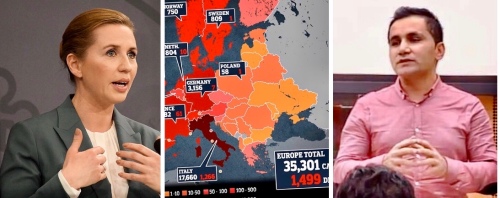


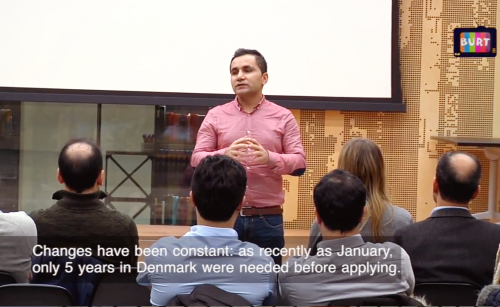
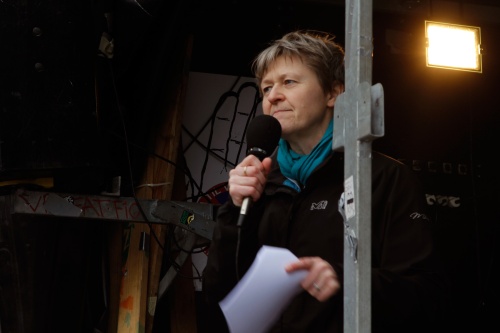
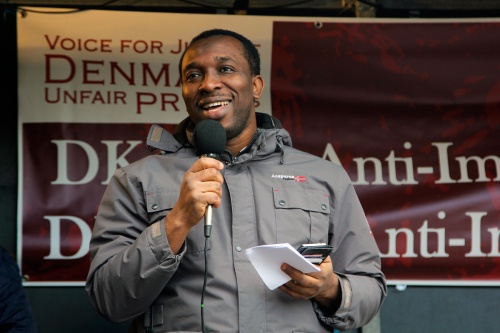
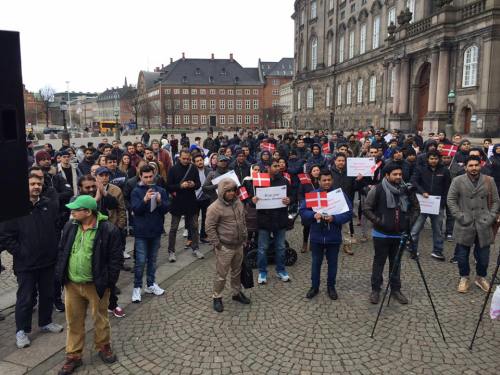

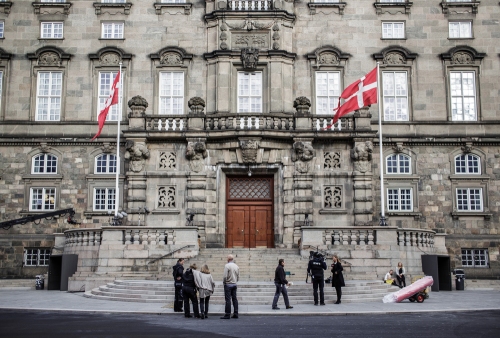

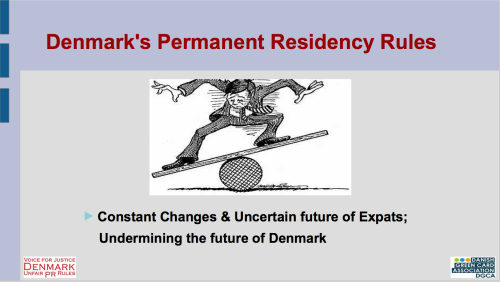
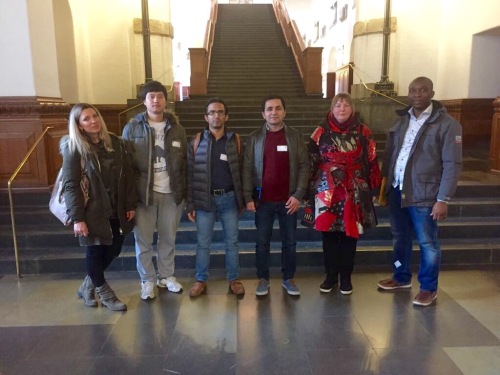

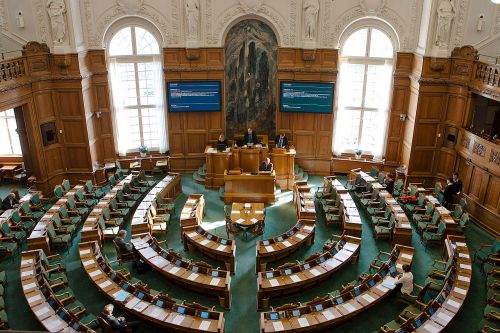
 Naqeeb Khan is a graduate of University of Glasgow, Scotland and currently resides in Denmark. He is President of Green Human Resources, Executive member of Danish Green Card Association (DGCA) and Spokesperson for Voice for Justice Unfair Permanent Residency Rules Denmark. He can be contacted at
Naqeeb Khan is a graduate of University of Glasgow, Scotland and currently resides in Denmark. He is President of Green Human Resources, Executive member of Danish Green Card Association (DGCA) and Spokesperson for Voice for Justice Unfair Permanent Residency Rules Denmark. He can be contacted at 